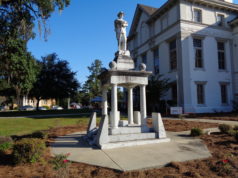
About Mitt Romney and the Bain Capital thing: I’ve always admired venture capitalists. But not all venture capitalists are equal.
The admirable ones are the sort who fund the start-up companies of entrepreneurs like Jobs and Wozniak. They’re the ones who enable the emergence of revolutionary technologies and ways of doing things that transform the marketplace and change the world. Bill Joy and John Doerr of Silicon Valley-based Kleiner Perkins Caulfield & Byers are examples of this type.
The less-than-admirable venture capitalists are the ones who buy existing companies with no intention of growing them or even running them, but with the intent of dismantling them and selling off their assets — or alternatively requiring the companies to take on debt in order to buy back their own stock at a premium (a practice called “greenmailing”). Carl Icahn and his pals at Drexel Burnham are examples.
Bain Capital seems to fall between the two. It invested in some startups, and it invested in some companies that were looted and shut down. Two of the former that Romney points to are Staples and Sports Authority, two retail marketing companies. One of the latter that Romney’s critics point to was GS Industries, a steel mill in Gaffney, S.C. (I’d be more impressed with Romney’s venture capitalist chops if it had been the other way around, but that’s just me.)
When Newt Gingrich called Romney out for Bain’s flirtations with the darker forms of venture capitalism, a number of prominent Republicans accused Gingrich of attacking capitalism.
They argued that corporate failures are as much a part of venture capitalism as corporate successes, and pulling the plug on the losers and selling off the pieces is just another part of the game. So is buying underperforming companies and clearing them out of the marketplace. And if some people, maybe even a lot of people, lose their livelihoods and their pensions in the process, it can’t be helped. Besides, in the long run, everyone will benefit.
There’s some truth to that in economic terms, but it’s a defense of capitalism that may be more damaging to Romney’s prospects than anything Bain did.
I think it was George Will who once made the point that in professional sports there are unwritten and unspoken rules in addition to the official ones. Failure to abide by them can turn the violators into pariahs if they do it often enough.
Unspoken rules often speak to the need to refrain from gaming the system and for the need for fairness.
In the eyes of a lot of Americans, corporate raiding violates the unspoken rules. It games the system. It’s unfair. It’s a dirty trick. And when it costs productive people their livelihoods, it’s seen as contemptible, even if it is legal.
The problem isn’t that Bain may have made obscene profits. Most Americans are cool with obscene profits if they are made, as Bill Clinton put it, by working hard and playing by the rules. Official and unspoken.
Americans are not cool with people who came by obscene wealth by gaming the system — even if they did work hard at gaming it.
I think if the Republican establishment insists on conflating the forms of venture capitalism, there’s a real chance the most consequential thing that will come of it is that it may succeed in reminding several million Reagan Democrats why it was that their parents and grandparents were Yellow Dog Democrats.
The main reason the Republican establishment wants Romney is that they think he’s the party’s most electable candidate. But is he really?
Whatever else the Republican debates have accomplished, they’ve proven conclusively that Mitt Romney is not Mr. Charisma. His electability hinges on his resume, and Bain Capital is a big part of it.
But the Bain thing presents a mixed bag.
I get the part about the “creative destruction” of capitalism; Schumpeter was a right-on dude.
I get the part about the importance of venture capital and risk-taking in continually renewing and revitalizing the marketplace.
I get the part about the market, not the government, picking winners and losers.
I get the part about the critical role vultures play in policing up the road kill on the highways and byways of commerce. It’s a dirty job, and I appreciate it.
But there is an important difference between the job description that goes with the Oval Office and the job description that goes with a corner office. A CEO is expected to maximize profits for the stockholders. The president is expected to do the greatest good for the greatest number of the people.
Sometimes what’s good for a Bain Capital is good for the USA. Sometimes it isn’t. Romney is a political chameleon, and that makes it hard to know if he can tell the difference.
And that leaves me reluctant to replace the eagle on the Great Seal of the United States with a buzzard. Even if the buzzard has rebranded himself as a condor.
Judging by what happened last week in South Carolina, I suspect I’m not alone in this.
Respond: [email protected]
This opinion column does not necessarily reflect the views of Boulder Weekly.














